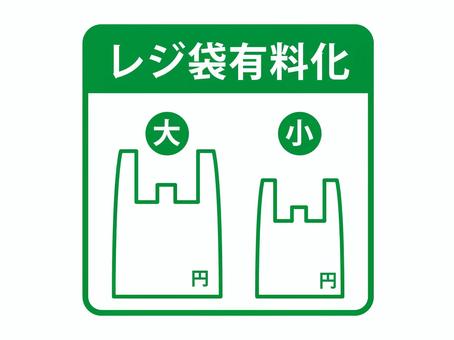概要
環境問題への関心と環境リスクへの認識を高めるため、2020年7月から日本でも全店舗でレジ袋の有料化が実施されました。レジ袋の有料化について、環境リスク認知、親環境的習慣、レジ袋削減の試み、地域感覚を扱った調査を実施しました。この調査では、有料化後の行動変化、つまりレジ袋の使用量が減った、あるいは以前と変わらないという行動によって区別される影響要因と、他の一般的な環境行動や認識との関係から、その長期的な成功に資する知見を提供することを目的としました。
2つのグループからデータを収集しました。グループ1は、有料化後にレジ袋の使用を減らした人たち、グループ2は、有料化によって行動を変えなかった人たちです。まず、ロジスティック回帰分析により、グループ1とグループ2を区別する因子を抽出しました。次に、レジ袋削減の試みと環境行動・認識との関係を構造方程式モデリング(SEM)により示しました。その結果、年齢、居住地、他人の行動の観察、エコバッグの使用試み、省エネ行動などがレジ袋削減の有意な影響因子であることが分かりました。さらに、SEMの結果、親環境的な習慣とは有意な関係がないが、環境リスク認知やリサイクル行動には有意な影響を与えることが示されましたa。したがって、レジ袋有料の義務化は環境問題への関心を高め、さらなる環境行動を醸成することができるが、この戦略を成功させるためには、年齢、居住地、個人の親環境的な習慣などの影響要因を考慮した詳細なアウトリーチ戦略が必要であることが示唆されました。
In July 2020, Japan implemented mandatory charges for plastic bags at all stores as a means to stimulate interest in environmental issues and increase awareness of environmental risks. To assess the impact of this policy, we conducted a survey focusing on consumer attitudes toward mandatory plastic bag charging, environmental risk perception, pro-environmental habits, efforts to reduce plastic bag usage, and sense of community. Our study aimed to identify factors that distinguish consumers who have reduced their use of plastic bags (Group 1) from those who have not changed their behavior despite the mandate (Group 2). Furthermore, we examined the relationship between attempts to reduce plastic bags and other common environmental behaviors and perceptions through structural equation modeling (SEM), providing insights into the potential long-term effectiveness of the policy. Data were collected from participants in both groups, and binary regression analysis was employed to identify influential factors that differentiate Group 1 from Group 2. The results revealed that age, place of residence, observation of others’ behavior, attempts to utilize eco-friendly bags, and engagement in energy-saving practices significantly influenced the reduction of plastic bag usage. Moreover, the SEM analysis demonstrated that while the policy was not directly associated with pro-environmental habits, it did have a significant impact on environmental risk perception and recycling behavior. These findings suggest that mandatory charging for plastic bags can generate interest in environmental issues and contribute to fostering further sustainable behaviors. However, to ensure the successful implementation of this strategy, a comprehensive outreach approach tailored to influential factors such as age, place of residence, individual pro-environmental habits, and more, is crucial. By considering these factors, policymakers can effectively promote environmental consciousness and encourage sustainable practices among consumers.
雑誌名
PLOS Sustainability and Transformation
発表タイトル
Charging plastic bags: perceptions from Japan
著者
Yuna Seo, Fumiko Kudo
DOI
引用
Yuna Seo, Fumiko Kudo. “Charging plastic bags: perceptions from Japan” PLOS Sustainability and Transformation (2022)



